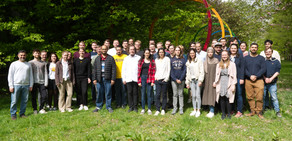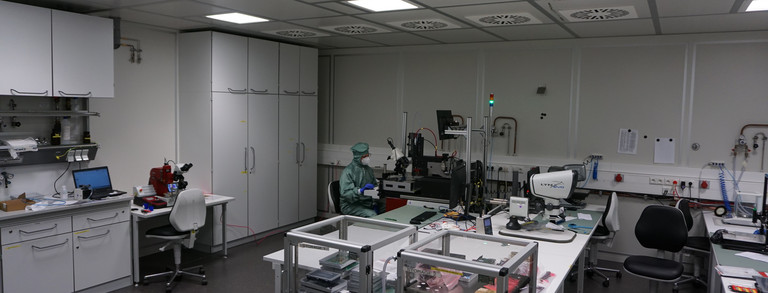Theses
You are interested in writing a thesis in the field of experimental particle physics?
We offer topics for bachelor and master theses on current research questions focussing on the reconstruction of hadronic signals in the ATLAS detector. An overview of the topics currently available in our junior research group can be found at the bottom of this page. Below there is also an overview of the theses written so far in our group on this topic.
If you are interested in one of the currently available topics, or if you would like to discuss other possiblities or topics in the field of particle physics, please feel free to contact us. We are looking forward to a chat with you.

Contact
Currently available topics for theses
Effect of the polarizaton of W and Z bosons on substructure variables
- Teilchenphysik - NWG Delitzsch
The identification of hadronically decaying W and Z bosons is based on algorithms that use machine learning and analyse the substructure of jets (distribution of energy within the jet). For training, Monte Carlo simulations are used that contain mainly longitudinally polarised vector bosons as signal and so-called working points with certain signal efficiencies, e.g. the algorithm correctly identifies 80% of the signal, are defined. We know that in Standard Model processes not only longitudinally polarised vector bosons occur but also a high proportion of transversely polarised vector bosons, the precise fraction depends on the process. The substructure of jets depends on the polarisation of the particles, since the decay products are emitted either along/opposite the trajectory of the decaying particle or perpendicular to it. This means that the algorithms developed so far have not been well optimised for transversely polarised vector bosons and thus the sensitivity in precision measurements decreases.
In this project, Monte Carlo simulations of transversely and longitudinally polarised vector bosons are analysed and the most important substructure variables are compared. Machine learning can then be used to train new algorithms that identify transversely polarised vector bosons. Ideally, it would also be possible to study how efficiently an algorithm could distinguish between the different types of polarisation.
Completed theses
Master theses
| Jan Jäkel | Jet-Lepton Overlap Removal Optimization in context of the boosted H to WW to lnuqq measurement using Run 2 data in ATLAS | April 2024 |
| Simone Ruscelli | Feasibility studies for the extraction of the efficiency of boosted W/Z identification algorithms in diboson events using 13 TeV proton-proton collisions in ATLAS | September 2023 |
Bachelor theses
| Joel Koch | Quark versus gluon tagging in the forward direction using topo-towers with the ATLAS detector | August 2023 |
| Bastian Schuchardt | Achievable performance of boosted object identification algorithms using machine learning techniques in ATLAS | Juli 2023 |
| Simon Unterste-Wilms | Performance of boosted object identification in fast simulation at the ATLAS Experiment | Februar 2023 |



